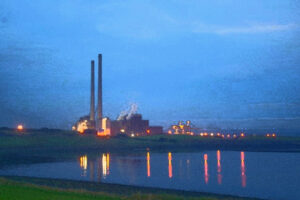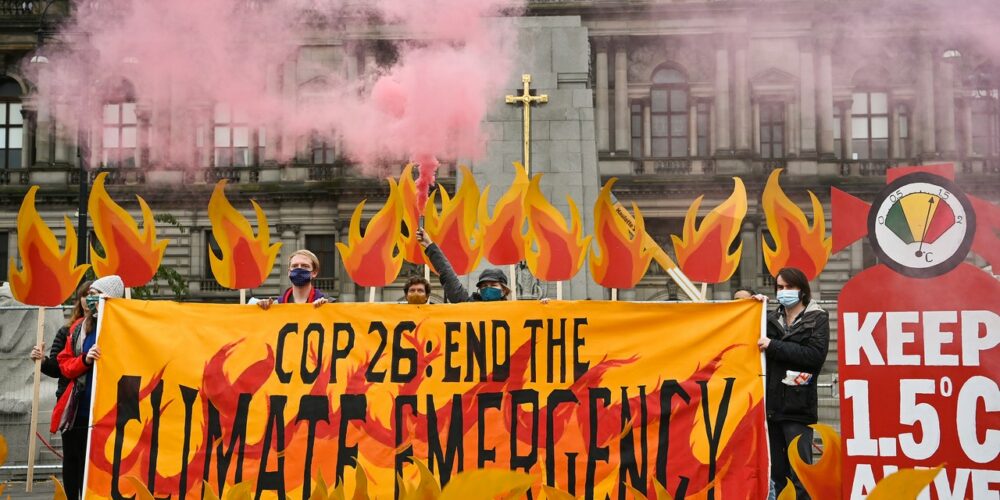The constant growth of capitalism, fuelled by exploitation, has resulted in an energy crisis in the European Union. Oil prices have risen by 60 per cent this year, while natural gas has risen by 500 per cent, and coal prices in China are at a record.
The increase in gas prices has in turn caused a switch from natural gas to coal in the EU, which will cause more pollution. The EU closing coal mines in member-states, offering no job security, shows a complete lack of planning, both environmentally and economically.
With the crisis, Eirgrid has warned that consumers will have to brace themselves for five years of high prices. With already high costs of living and a housing crisis, the Government will have to act.

Ireland’s lack of investment in renewable energy has also been a factor in the crisis, as the country relies on natural gas, oil and coal for heating and electricity. The current coalition, one third of which is the Green Party, will have the attention of the people as we head into winter.
As the present Government has shown that they are more focused on the profit they can make with the housing crisis, they will ignore those most affected by the energy crisis: the working class, those on the minimum wage, students lacking accommodation, and the homeless. As the recent protests against gold mining in the Sperrin region in Co. Tyrone show, profit will come before green energy or any environmental policies.
Russia has faced a greater demand for natural gas as it goes into a colder winter, and exports to the EU have dropped; however, they have said they may increase exports to the EU. China also had an increase in demand for coal, causing shortages and increased prices. However, the government moved quickly to increase supplies, causing coal production by mines to rise by 4½ per cent.
Meanwhile the energy crisis in the EU continues. China’s quick response shows how a planned economy can react; however, even with this increase its reliance on fossil fuels has caused an increase in demand, with winter coming to put more pressure on the government to increase the power supply for heating in homes.
With an unofficial ban on coal imports from Australia, they have now switched to Mongolia. However, Australian coal was cheaper to import, causing less coal to be imported.
The EU’s lack of transition to green energy, which can be seen especially during an energy crisis, has shown that profits are being put before any action to reduce climate change. The EU’s “green deal” has been halted as the EU confirmed its commitment to natural gas, oil, and now, with the current crisis, coal. With 1,103 companies that work with oil and gas for profit within the EU, with no incentive for countries and companies to move to less profitable renewable energy sources, it shows that capitalism’s ever-expanding consumption has led to the dialectical result of running out of resources.
The Netherlands, Europe’s leading producer of natural gas, began phasing out its largest gas field in 2018. In 1990 the EU produced 277 million tonnes of coal, in 2020 only 56 million tonnes. The switch from gas to coal that the EU is planning will not fix the crisis. France, which exports 10 gigawatts to other EU countries, is also facing high energy prices, despite using nuclear power. They could decide to limit exports or even cut off the EU completely to conserve energy and cut costs; this in turn would increase energy costs throughout the EU. France has warned Britain that it may cut it off if it continues to violate the Brexit agreement.
But while the ever-expanding, ever-consuming system of capitalism has led to a world energy crisis, economists are worried about switching to renewable energy, stating that solar energy could create so much energy that the supply could go so high above demand that the cost could go into the negative. The huge increase in prices and the lack of resources shows the people of the world clearly that we must switch our tactics on how we create energy. We can no longer rely on fossil fuels, as this will lead to crisis after crisis. We must invest in green energy.
A nationalised energy industry that provides electricity and heat for the people rather than for profit is what is needed throughout Europe to combat the crisis and prevent another one in the future.






